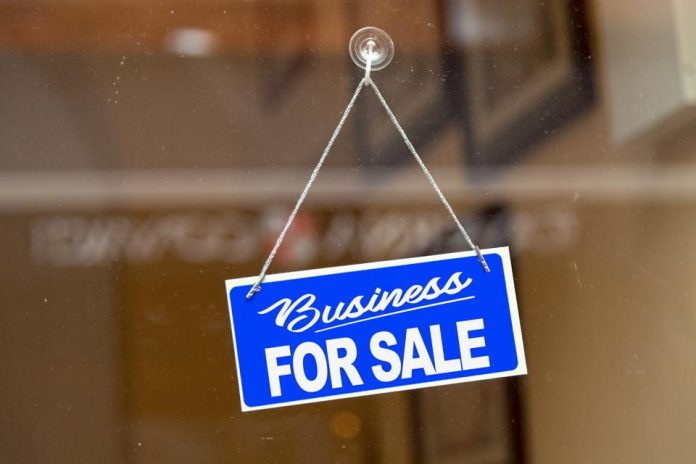Make the most efficient use of your time by flipping and selling a business . As business people continue to seek out reliable, innovative ways to make money, many of us have turned to business selling as a hobby, side hustle, or primary vertical. Discover how to sell a business quickly while making a profit from flipping and selling it in a foreign market below.
Reasons Why Selling a Business Instead of a House Is Better
Before the subprime mortgage crisis and the housing crash of 2008, it seemed like almost everyone flipped houses. The fierce competition and fevered demand for “easy” money motivated unscrupulous lenders to sign off on bad loans, leading to the financial ruin of millions of investors in Europe and around the world.
Fortunately, selling a small business does not involve the same hazards as home flipping, making it a better option for business people who find themselves searching for new investment opportunities. Discover why flipping businesses instead of houses is better, below.
1. Low Competition
You’ll feel like a kid in a candy store when you realize how few real players exist in the business-selling game. Even entry-level wage-earners grasp the home-flipping process, but few people know how quickly and easily you can flip companies for huge profits. Due to the low competition in selling businesses, the best time to jump in with both feet is always yesterday.
2. Seller Financing
Selling your business online involves a more streamlined process than flipping houses. For one, it doesn’t require banking institutions to get involved as middlemen and slow down the process. This advantage makes finding the money you need a lot easier — seller financing is right there across the bargaining table from you.
3. Immediate Returns
In house flipping, you need to spend money on the house before you spend more money on fixing it up. Then, you sell the home for a profit. When flipping an already profitable enterprise, you can use some of the early cash flow to make the changes you need before the sale. These immediate returns make selling a business more safe and stable than house flipping.
4. Less Red Tape
Housing regulations, escrow rules, and bank loan rates are onerous. When house flipping, there are a few dozen things that could go wrong. Business flippers know they control almost everything that happens after the initial purchase and prior to the final sale. Less red tape means fewer potential surprises for you to worry about while investing.
5. Bigger Rewards
One of the best things about small business selling is how rewarding it can be. Company valuations range wider than home prices, and the profit potential is greater when flipping ventures. Indeed, neither a floor nor ceiling on business valuations seems to exist when buying and selling a business for a quick profit.
How to Find, Fix, and Flip a Business for Sale in Seven Steps
Now that you know why buying and selling a business makes sense, let’s discuss how to buy and sell a company for a profit. You will see that it takes planning, discernment, sticktoitiveness, money, and know-how. Once you complete a few flips, you will start to know the flipping process by heart. Discover how to find, buy, fix, and sell a business in seven steps below.
Step 1: Create a Due Diligence Checklist
Before you even register with an online marketplace offering sales of businesses, you should create a game plan. Draft a due diligence checklist to keep you on task once you do start viewing companies listed for sale. Some of the things you will want to check regarding a potential target business include:
- Business model
- Content quality
- Backlink profile
- Traffic trends
- Competition strength
- Financial health
- Niche viability
- User experience
- Product quality
- Human resources
- Licenses and permits
Eurostat reported that in 2020, the generated wealth that all of the member EU countries have made were 6,557 billion Euros from the millions of European enterprises in various industries. So if you’re planning to buy and sell companies, Europe is a great market to consider. Many Europeans are bilingual, so it’s no wonder businesses that want to succeed in this market must make their company available in different languages.
For example, Italian is the official language of Italy, Switzerland, San Marino, and the Vatican. The Italian language has 67 million native speakers and over 13 million second language speakers in the EU market. If you’re planning to request and receive documents from your target company that’s from the mentioned countries where Italian is the official language, you will need to translate documents from English to Italian that’s made by a certified translator. It will then be notarized by the Italian consulate and certified by Apostille.
Step 2: Search for Businesses Available for Sale
Now that you have a set plan for how you will evaluate target companies for sale, register with some of the best online marketplaces for selling my business online and start your search. As you encounter potential target companies during your search, you can begin to perform your due diligence. Some of the most popular online marketplaces that flippers use to find a biz for sale include:
- Flippa
- Shopify Exchange
- Empire Flippers
- Digital Exits
- Latona’s
- FE International
- SideProjectors
Step 3: Raise Funds
Once you discover a target business for sale online, you will need funding to complete the transaction. Selling a business requires raising funds in a variety of ways depending on the specific circumstances surrounding the proposed transaction. Some of the most common ways to raise funds for a business acquisition include:
- Taking out a bank loan
- Engaging a venture capital firm
- Crowdfunding online
- Requesting a private loan from a friend or family member
- Financing the purchaser directly with the seller
Step 4: Acquire Your Target Company
As soon as you have the money in place, you can move to acquire your target company. Keep in mind that you usually do not need to pay for the entire business up front. You can structure your purchase agreement in various ways, making payments over time or providing earnouts to the seller when you meet revenue goals.
Step 5: Fix Your New Business
Now that you own the business you want to flip, it’s time to take advantage of the opportunity you spotted to increase revenue or cut costs. What you need to do to fix the company before the sale will depend on the inner workings of your new business. Some of the most common fixes that business flippers employ to turn a profit involve:
- Improving SEO
- Fine-tuning conversion funnels
- Updating prices
- Holding special sales events
- Developing an email list
- Adding monetization methods
Step 6: Create a Sale Listing for Your New Business
After you have established a positive, sustainable trend in revenue or profit, you can relist the business you purchased only weeks or months ago. In fact, you can list your company for sale on the same online business marketplace where you purchased it. Once you have listed your business, it becomes a waiting game as you anticipate your first hit.
Step 7: Close the Deal
Most of the time, your first contact with a potential buyer will not result in a sale. However, if you prove willing to work with interested parties, you should find yourself able to close a deal within a matter of months. Should you experience difficulty finding a buyer, consider hiring a broker who specializes in the sales of businesses.
FAQ on Selling Businesses
How do I find businesses to flip?
You can find businesses to flip by identifying an opportunity created by market forces, new regulations, or geopolitical events. Log into an online, global business marketplace and search for companies in your target industry. Generate a short list of companies and start performing your due diligence.
Is flipping a business profitable?
Flipping a business is profitable if you accurately evaluate the target company. Some of the easiest flips involve online businesses with a lot of traffic but poor conversion rates.
You can also cherry-pick profitable businesses with below-average digital marketing practices. Otherwise, you can almost always complete a profitable flip as long as you fix something significant about the target company.
How do you value a business for sale?
You can value a business for sale in a few different ways. Seven of the most popular ways to value a business include:
- Looking at the balance sheet
- Calculating EBITDA
- Performing a discounted cash flow analysis
- Using the industry’s price-to-earnings ratio
- Analyzing the business’s location
- Determining the business’s enterprise value
- Applying the value of a growing perpetuity formula to the business
How do I find an existing business to buy?
You can find an existing business to buy by looking in several different places at once. The seven best places to find existing businesses include:
- Online broker sites like Flippa, Empire Flippers, and BizBuySell
- Regional business brokers
- Local business attorneys
- Nationwide accounting agencies
- Established franchisors
- Investment bankers
- Venture capital firms
Business of Selling for Fun
As with any new venture, the first time you flip a business will take the longest as you overcome the learning curve and encounter common pitfalls. However, after you have flipped a business for sale once or twice, the process becomes more familiar and things speed up at every stage. After several flips, you may even find yourself flipping companies for the sheer fun of it.



































